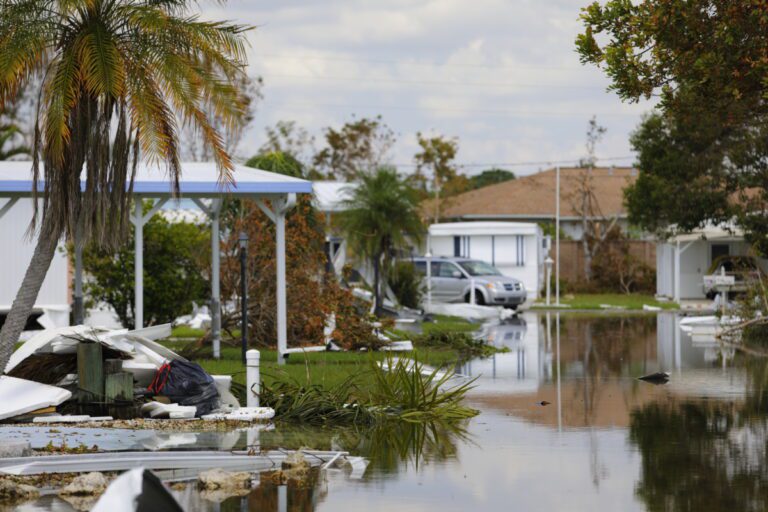An unfortunate but very real and overwhelming problem that has shown up in the wake of this year’s hurricane season in Florida is the swarms of mosquitos. The problem has gotten so bad that there are planes are dropping pesticide over hundreds of thousands of acres to control the insects. And this is not private companies left to combat the problem, state and local officials are chipping in to wage this war against the often disease riddled mosquitoes which are known to spread diseases like West Nile virus and St. Louis encephalitis. Officials are desperate to keep residents and recovery crews safe.
At Paraclipse, we will continue to work to provide all the help we can to these businesses in need of our products like the Mosquito Eliminator to help control the spread of mosquitos in storm-damaged areas. But we know that we are a part of a larger effort to keep people safe since mosquitoes are an expected, annoying and sometimes dangerous secondary consequence of a storm.
One thing mosquito control professionals know is there is a predictable sequence of events that you can after a major storm:
- About a week after the storm recedes, larvae will begin to emerge. This means that mosquito control crews will focus on disseminating larvicides immediately after the storm. This includes completing treatments that are toxic to mosquito larvae, which includes bacteria, oils and chemicals that halt insect growth, and are often dropped from a helicopter or applied by crews on the ground.
- The first mosquitoes to emerge after a storm are named floodwater mosquitoes. Mosquito habitats consist of eggs laying in the soil waiting for rain. Once an area is flooded there are literally millions of mosquitos that emerge at once. When this happens, control crews switch to spreading pesticides and pilots spray small droplets that kill the insects on contact.
- As flooding recedes, the water that remains can become stagnant. Standing water is a breeding ground for culex mosquitoes. These are the mosquitoes that are responsible for transmitting West Nile fever and St. Louis encephalitis.
- Lastly, you have the miscellaneous objects that trap water and breed container mosquitoes which are known to transmit dengue fever and other viruses. In 2022 alone 30 cases of dengue fever and two cases of West Nile virus had been reported to the Florida Health Department. In 2021, Florida reported no locally acquired cases of dengue and five West Nile cases.
As mentioned above, pesticide spraying operations are currently in full swing in the most affected areas of Florid including Lee County and other places in the state. The pesticides commonly used for aerial spraying are registered with the Environmental Protection Agency. While these pesticides are essentially safe, there are some dangers to the public’s health when these are used in wide areas.
Contact Paraclipse Today
You can protect your business, your customers, and your family by utilizing Paraclipse products in your business and home. If we cannot provide the products that you need, we will work to ensure you can find someone to help you in your area. Your safety and health is of the utmost importance to us. You can contact us anytime to discuss our unique and effective products and how we can help you stay bug-free!

